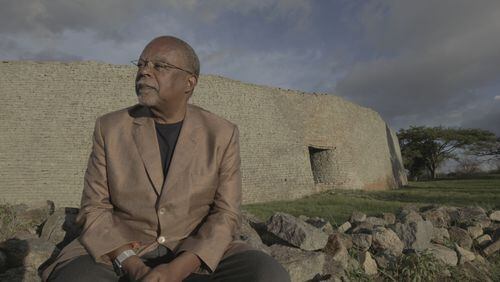Ever since seeing the "Civilisation" documentary series, which focuses on the history of Western culture, when he was 19 years old, Dr. Henry Louis Gates Jr. dreamed of creating something incredibly similar. However, his contribution would be about Africa.
That dream will become reality on Feb. 27 when his six-hour documentary series "Africa's Great Civilization" premieres on PBS. There will be subsequent airings on March 1 and March 2.
“The point of this series, without using any exaggeration and the most exact scholarly standards, is to tell the story of Africa, not fantasizing it in an Afrocentric way — just telling the story,” Gates said.
This isn't Dr. Gates first time studying Africa — not by a long shot. He has authored or co-authored 21 books and created 15 documentary films, including "The African Americans: Many Rivers to Cross" which won him a 2013 Emmy for Outstanding Historical Program—Long Form, Peabody award and NAACP Image award.
He also is the Alphonse Fletcher University Professor and Director of the Hutchins Center for African and African American Research at Harvard University, so it’s safe to say he’s up to the task of documenting the history of an entire continent and all of humankind.
“We all are so ignorant of the history of Africa and of the fact that Africa is the origin of the human community,” Gates said. “We are all Africans. We are all descendants of Africans.”
RELATED VIDEO: Celebrating Black History: Simone Biles
That's where the documentary begins, roughly 200,000 years ago with the emergence of the Mitochondrial Eve, humanity's most recent common ancestor. It then follows evolution through the period of time 50-80,000 years ago when anatomically modern Homo sapien ancestors left Africa.
What follows is a lot of history, technological advancements, culture and empires that Dr. Gates said is often glossed over or forgotten, most likely due to an emphasis on Africa’s colonization and slave history.
“The (common) image of Africans is that they were sitting around not doing anything waiting for Europeans to show up (laughs),” Gates said. “It’s just not true.”
Skipping right to the slave trade misses important parts of Africa’s significant history. For example, Ethiopia was the third country to convert to Christianity in 350 A.D. after only Rome and Armenia.
East Africa also produced almost all of the gold used in Europe from 1000-1500 A.D. That doesn't even mention potentially the richest man in human history, Mansa Musa, leader of the Empire of Mali in the 14th century.
RELATED:1619: The first Africans arrive in the New World
The documentary series has a very specific ending point — down to the date. It stops on March 1, 1896, which may seem like a random date, but it definitely isn't. It's when the Emperor of Ethiopia, Menelik II, and his army defeated the invading Italian army in the Battle of Adwa.
“Italy had been given Ethiopia, so they had to try to conquer it, and the Ethiopians believed the Ark of the Covenant is there,” Gates said. “Forget ‘Indiana Jones.’ The Ethiopians believe it is in St. Mary of Zion Church. They took a replica of the Ark of the Covenant into battle, and they won.”
Dr. Gates also mentioned that the second airing date for the documentary, March 1, is the 121st anniversary of this battle. For now, Dr. Gates is counting down until the premiere, hoping that his teenage dream documentary will help teach many people about the African continent.
“I wanted it to be a teaching tool in the classroom, and I wanted it to be for the general American viewer, so that we would know how great a source of culture and history Africa really is.”






